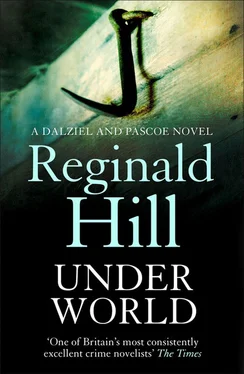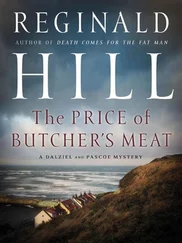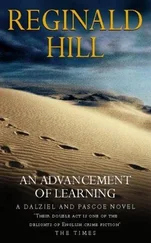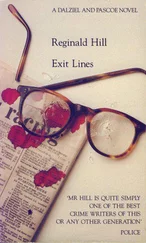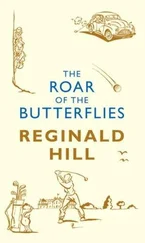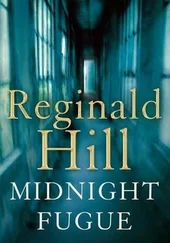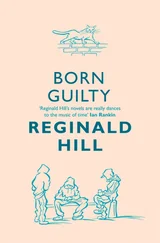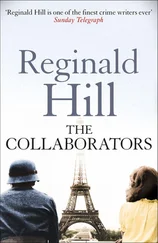Reginald Hill - Under World
Здесь есть возможность читать онлайн «Reginald Hill - Under World» — ознакомительный отрывок электронной книги совершенно бесплатно, а после прочтения отрывка купить полную версию. В некоторых случаях можно слушать аудио, скачать через торрент в формате fb2 и присутствует краткое содержание. Год выпуска: 1988, ISBN: 1988, Издательство: HarperCollins Publishers, Жанр: Полицейский детектив, на английском языке. Описание произведения, (предисловие) а так же отзывы посетителей доступны на портале библиотеки ЛибКат.
- Название:Under World
- Автор:
- Издательство:HarperCollins Publishers
- Жанр:
- Год:1988
- ISBN:9780007380305
- Рейтинг книги:5 / 5. Голосов: 1
-
Избранное:Добавить в избранное
- Отзывы:
-
Ваша оценка:
- 100
- 1
- 2
- 3
- 4
- 5
Under World: краткое содержание, описание и аннотация
Предлагаем к чтению аннотацию, описание, краткое содержание или предисловие (зависит от того, что написал сам автор книги «Under World»). Если вы не нашли необходимую информацию о книге — напишите в комментариях, мы постараемся отыскать её.
Under World — читать онлайн ознакомительный отрывок
Ниже представлен текст книги, разбитый по страницам. Система сохранения места последней прочитанной страницы, позволяет с удобством читать онлайн бесплатно книгу «Under World», без необходимости каждый раз заново искать на чём Вы остановились. Поставьте закладку, и сможете в любой момент перейти на страницу, на которой закончили чтение.
Интервал:
Закладка:
‘You heard that?’ exclaimed Satterthwaite looking round. ‘All of you here heard that: By God, you’ll not get away with threats like that, Farr!’
‘Threats? Who’s making threats?’ said Farr all injured. ‘I went out of my way to say I weren’t threatening you, didn’t I? No, it’s all right, Pedro, I’m just going. Mustn’t be late for shift, must I? Best sup up, Mr Satterthwaite, sir. Up to you important officials to set an example in timekeeping.’
Shaking himself loose from Pedley’s renewed grip, he turned and walked out of the bar.
In the fresh air he took several deep breaths. Ahead stretched the road which led up to the top of the valley and the pit. There were men walking along it to clock on. He didn’t feel ready for company and on impulse he turned off the road into the unmetalled driveway which ran up the side of the Welfare. This was the nearest way from the village up into Gratterley Wood. It was up this driveway, which became a lane and then a track, that Billy Farr and Tracey Pedley and Billy’s dog, Jacko, had walked to go brambling that bright autumn afternoon.
And presumably too it was up here that Billy Farr had made his own last journey, that crisp Boxing Day morning three months later. The ridge was honeycombed with workings, their entrances sealed off by anxious man and heartless nature. There’d been many accidents over the years, the last during the Strike when shortage of fuel (and the irony was that the striking miners were the only people in the country short of fuel that winter) had led a team of youths to open an old drift. There’d been a roof fall which had almost killed one of them and for the rest of the Strike the ridge and woods had been more sternly policed than they had since the eighteenth century. Such was progress.
The subsequent sealing-off process had been declared comprehensive and foolproof. But there still remained entrances to that dark world which childhood memory and adult ingenuity made accessible, and Colin Farr’s ramblings, which so disturbed his mother, had not been all overground.
But today it was peace and oblivion he sought. Soon after the lane became a track, it unravelled into half a dozen green paths and he chose the one which led him into the heart of the wood. Here there was a large outcrop of creamy limestone, known simply as the White Rock. It had been a popular trysting-place long before the locals penetrated the earth any further than a ploughshare’s depth, and the surrounding area provided any number of nooks and dells where a man and a maid could lie, safe from casual gaze.
Colin Farr settled beneath the White Rock and recalled those days when, a schoolboy still, he had first come here hand in hand with a girl. He’d felt little of the usual adolescent awkwardness in his relationship with girls. In fact, all of life had seemd easy in those days. You did what you wanted and if you wanted to do something else, you did that instead. No one made your choices for you. It was only later that he began to realize how much ignoring other people’s choices limited your own.
He pushed the darkening thought away from him and tried to focus on brighter things. Mrs Pascoe, for instance. He couldn’t make his mind up how he felt about her. It was different being with her, that was certain, she made him feel livelier somehow, sent bubbles streaming through his imagination. But at the same time she made him feel uncertain of himself, as if that adolescent awkwardness he’d never experienced had merely been lying in wait for him. He didn’t like that. He found he was scowling again.
‘Stupid cow,’ he said out loud in an attempt to exorcize the image.
Suddenly he sat up. He had a feeling that he had been heard, as if someone stealthy enough to stalk him unobserved had been startled into movement by his unexpected outburst. And now he felt watched also, but his eyes gave him no support for the feeling.
He rose. It was time to go anyway. He set off along the crest of the ridge so that he remained in the world of trees and leaves and earth and sky for as long as possible, but all too soon he emerged at the head of the valley where the ground fell away to the road, then rose up again to the north ridge. Here they were, graffiti on the blue sky, the dark tower of the winding gear, the conveyor like a ramp into the bowels of a convict ship, the scatter of low sullen buildings all squatting amid mounds of their own waste. The pit-head, whose ugliness only hinted at the vileness of the organism beneath.
One of these buildings was the Deployment Centre where men coming on shift went to report for work. It was still impossible for Colin Farr to come in here and not see his father. This was where Billy had been put after his accident. This was the last place they had seen each other at the end of the young merchant seaman’s final leave.
They’d said goodbye the previous night as Billy would have to be up at five to go on shift, but after breakfast Colin had been overcome by an urge to see his father again and had made his way up to the Deployment Centre. Spotting his father through one of the hatches, he called, ‘Hey, mister, can you set a young lad on?’
His father had looked up anxiously and said, ‘Is something wrong at home?’
‘No. I just thought I’d see if this place had improved with age.’
‘You needn’t have bothered. It’ll improve wi’ nowt short of bombing.’
‘Well, I’ll say cheerio, then.’
‘Right. Take care of yourself, son.’
‘You too, Dad.’
They’d regarded each other for a moment, then turned away in unison. As he strode back down the hill he was full of anger with himself. He was far from clear what he’d hoped to do by going up to the pit, but he knew he hadn’t done it.
Four months later as his ship wallowed in the Bay of Biscay against a Force Five which had stopped them from getting home for Christmas, the news had come over the ship’s radio. His father was dead.
It was his last voyage. The pressures to stay in Burrthorpe were great. His mother was breaking under the strain. He was engaged to Stella Gibson. Neil Wardle had told him he’d got management agreement that Farr’s old job would be available. Good will, it was called. Guilt, was what Farr called it. So he stayed. Within weeks his engagement was off. Within months his mother was improving and his pay was stopped for the duration of the Strike. But still he stayed, and still whenever he collected his ‘checks’, the metal discs with his number stamped on, he saw his father, framed in the hatch of the Centre and in his mind for ever.
‘Come on, dreamer,’ said Tommy Dickinson. ‘Last as usual. Anyone’d think you didn’t enjoy coming to this place!’
Together they went into the ‘clean lockers’ where they stripped and hung up their clothes. Then naked they walked through into the ‘dirty lockers’ where the miners kept their working clothes known as ‘pit-black’. It was no misnomer, thought Colin Farr as he took out the trousers, waistcoat and football shirt which he were underground. Their original colour was beyond detection. Dampened by sweat and pit-water, smeared with oil and grease, impregnated with coal dust, to put them on was an act as symbolic in its way as the priest’s assumption of the chasuble, the novice’s of her veil. Only, what these stiff and stinking garments signalled was no embracing of a higher will, no movement to a higher plane, but the exchange of light for darkness, fresh air for foul, sky for earth. Their clammy touch was the embrace of the pit itself.
‘You all right, Col? I’m not keen on working with buggers so hung-over they’re only half conscious.’
Neil Wardle was sitting next to him, struggling into a pair of boots which had set like concrete since his last shift.
Читать дальшеИнтервал:
Закладка:
Похожие книги на «Under World»
Представляем Вашему вниманию похожие книги на «Under World» списком для выбора. Мы отобрали схожую по названию и смыслу литературу в надежде предоставить читателям больше вариантов отыскать новые, интересные, ещё непрочитанные произведения.
Обсуждение, отзывы о книге «Under World» и просто собственные мнения читателей. Оставьте ваши комментарии, напишите, что Вы думаете о произведении, его смысле или главных героях. Укажите что конкретно понравилось, а что нет, и почему Вы так считаете.
